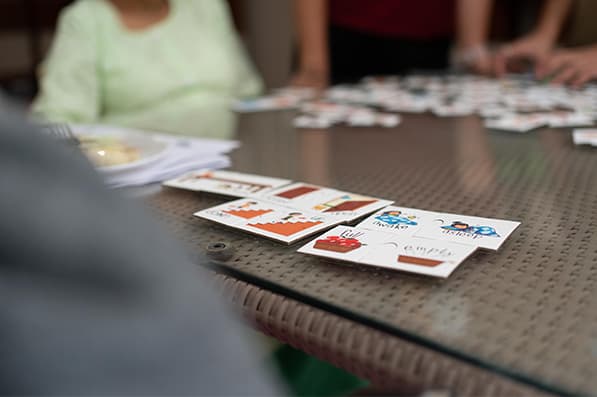
Loading...

Loading...
2024-08-21
Antara
Caring for Alzheimer's patients, or what is also the most common form of Dementia, requires not just a deep understanding of what the disease entails, but also a compassionate approach.

Additionally, since this is a progressive condition that impacts one’s memory, thinking and behaviour, the approach to care also needs to be tailored to each individual’s needs.
As the condition advances, the care for dementia patients becomes more intensive and specialised. Let’s explore some of the advanced care techniques for dementia patients, that can help caregivers deep dive into insights for better support.
How does Alzheimer's and Dementia progress?
Before deciding on the best care techniques, it is important to understand the progression of the disease. Typically, Alzheimer's will progress through three stages - early, middle, and late. While in the first stage, patients might only experience some confusion and mild memory loss, and as the condition progresses, they could face worsening symptoms such as struggling with bathing or dressing up properly. Each stage will have a unique challenge that a caregiver will face, and hence, will require different care strategies, including continuous monitoring.
Individualised care for Dementia patients
Having a care strategy centred around the person is one of the most effective approaches when caring for Alzheimer's patients. This type of care lays emphasis on treating the patient as an individual with unique needs and histories.
If you are able to understand their past identity, delve into how the disease is progressing, and then create a care plan that will resonate with the senior mentally. For instance, if a dementia patient liked to paint, incorporating some art-related activities into their routine will provide a sense of familiarity. Having a care plan centred around the patient should also involve regular communication, speaking to them in a reassuring tone, and making them feel understood.
Simple and empathic communication
Effective communication is a crucial aspect of caring for Alzheimer's patients. As the disease progresses, patients struggle with communicating their needs effectively, and may feel frustrated. To ease their struggles, consider adopting a communication technique that is simple and clear. Ask them only one question at a time so that they can process information easily. Use non-verbal communication such as hand gestures as and when required. And most importantly, be patient, allow them time to respond, and listen to them actively.
The need to create structured routines
Caring for Alzheimer's patients should also include establishing a structured routine, especially when they require advanced care. Patients thrive on consistency and familiarity, and having a structured routine will help ease some of the anxiety they might be feeling. Create a plan that includes activities conducted at the same times each day - whether it is meals, walks, and even sleep. It will provide stability to them, and reduce the chance of agitation due to confusion. Also ensure that this routine includes some form of physical activity. They don’t have to be rigorous though; anything that helps the patients move and also stimulates some cognitive function could possibly slow down the progression of the disease.
Ensuring proper nutrition
Nutrition and hydration are critical aspects of care for dementia patients. With progression of the disease, sometimes patients may forget to eat or drink, and even lose all interest. As a caregiver, ensure that the meals are small, frequent, and also easy to chew and swallow. Additionally, ensure that there are nutrient-dense foods and hydration available throughout the day. Keep monitoring the patient’s weight and other essential vitals to ensure their health is maintained.
Learning to manage changing behaviours
Alzheimer's patients often exhibit behavioural changes, including wandering and aggression. To address these, avoid confrontations, and instead identify the triggers that may have caused it. For example, if they are displaying aggression, understand if that may have been caused due to some physical discomfort. If they have wandered out, simply create a safer environment, and remove obstacles that might injure them.
Understanding these important care techniques will not only enhance the well-being of dementia care patients, but also provide caregivers the tools to navigate this complex journey. While caring for Alzheimer's patients is challenging, employing these advanced care techniques can help improve their quality of life significantly.
At Antara, we understand the need to be extra cautious when it comes to caring for patients with Dementia. Which is why Antara Memory Care Homes take care to offer a secure and safe environment with structured routines that help reduce the pace of cognitive decline among dementia patients. Not just that, Antara’s trained team also offers clinical wellness solutions, mental stimulation activities and emergency support for patients, while helping them carry out day-to-day tasks, and continue to live a life of dignity.
Conclusion

Please fill in the form and submit the details to request an appointment.